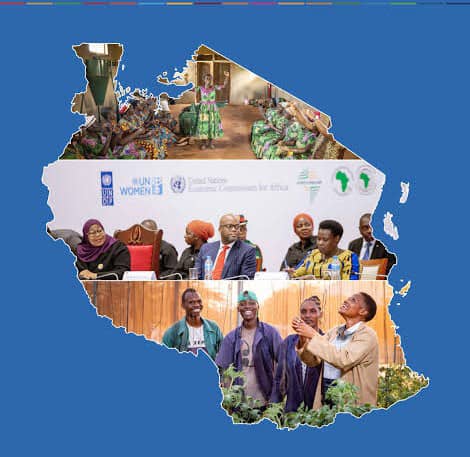By Business Insider Reporter The International Monetary Fund (IMF) has approved a financial package worth US$441 million (approx. TSh 1.18 trillion) to support Tanzania’s economic growth strategy and strengthen its resilience to climate change. The funding, which follows recent talks between the IMF and Tanzanian officials, is expected to be formally endorsed by the IMF …
IMF greenlights $441m in support for Tanzania’s growth and climate agenda

By Business Insider Reporter
The International Monetary Fund (IMF) has approved a financial package worth US$441 million (approx. TSh 1.18 trillion) to support Tanzania’s economic growth strategy and strengthen its resilience to climate change.
The funding, which follows recent talks between the IMF and Tanzanian officials, is expected to be formally endorsed by the IMF Executive Board by June and disbursed in the 2025/26 fiscal year.
The endorsement also signifies the IMF’s vote of confidence in the Sixth Phase Government’s management of the national economy and its vision for sustainable development.
The assistance will be provided through two instruments: the Extended Credit Facility (ECF), which supports economic stability and essential public investment through low-interest loans, and the Resilience and Sustainability Facility (RSF), aimed at long-term reforms addressing climate and environmental challenges.
]
“Tanzania’s economy is on a solid growth path, supported by sound policies and strong export performance,” said IMF Mission Chief Nicolas Blancher.
Positive Economic Outlook
The IMF mission, which conducted its assessment from April 2 to 17, noted continued economic momentum. Real GDP grew by 5.5 percent in 2024 and is projected to rise to 6 percent in 2025. Inflation fell to 3.3 percent in March, staying well below the Bank of Tanzania’s 5 percent target.
The country’s external sector has also strengthened, buoyed by increased exports of gold, agricultural products, and a resurgence in tourism.
Fiscal Reforms & Backing the Climate Agenda
“The government has committed to maintaining fiscal discipline while safeguarding investments in education, healthcare, and infrastructure.
A recent supplementary budget slightly increased spending but remains in line with debt sustainability objectives,” the global lender said in a presser.
The IMF highlighted ongoing reforms aimed at strengthening tax revenue collection; reducing domestic payment arrears; and ensuring responsible borrowing. These measures are designed to create space for more productive, growth-focused investments.
A significant portion of the new funding will support Tanzania’s climate agenda, focusing on strengthening institutions managing climate risks; promoting clean energy and green infrastructure, and improving disaster preparedness and water management
This makes Tanzania one of the few countries in the region leveraging the RSF to integrate climate resilience into national development plans.
Challenges Remain
Despite the positive outlook, the IMF cautioned against emerging risks. These include global economic headwinds, regional tensions—notably in the Democratic Republic of Congo—reduced donor funding, and possible election-related fiscal pressures.
Subscribe to Our Newsletter
Keep in touch with our magazine & offers










